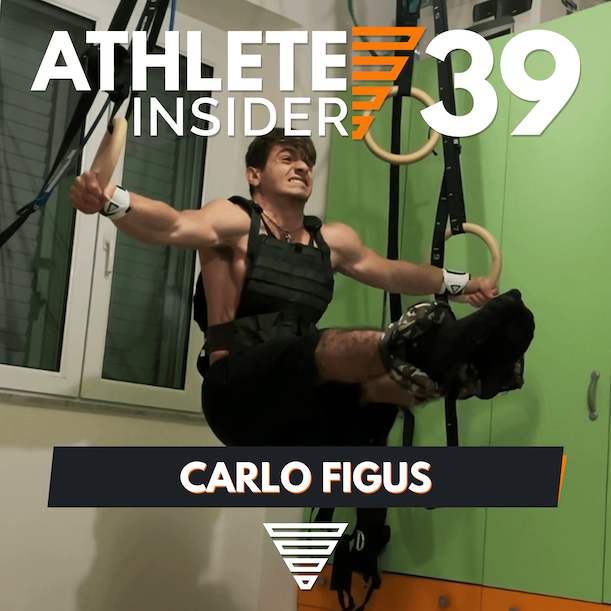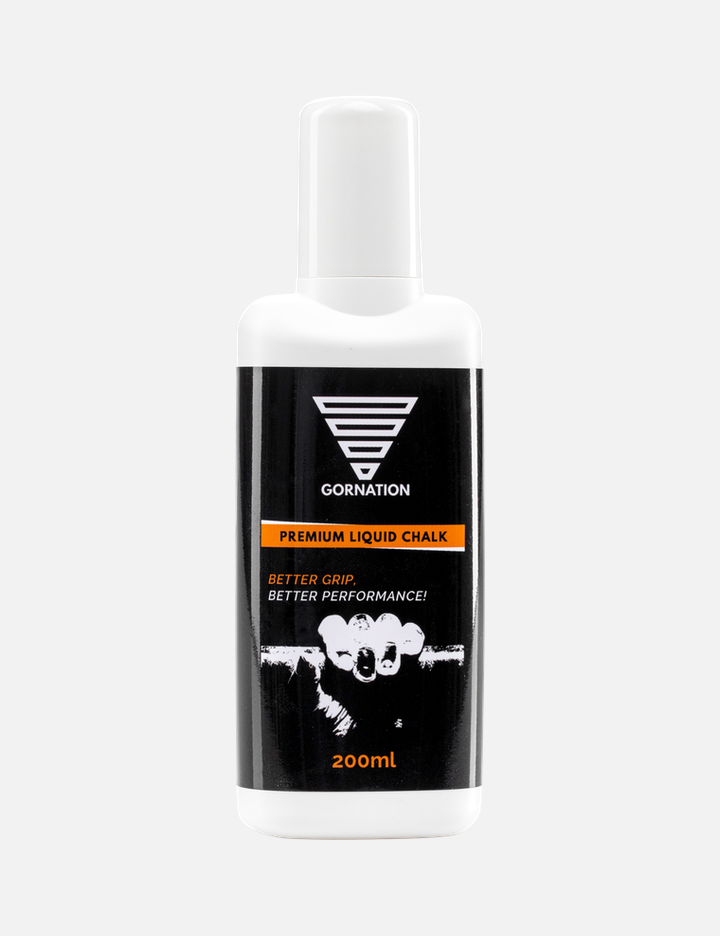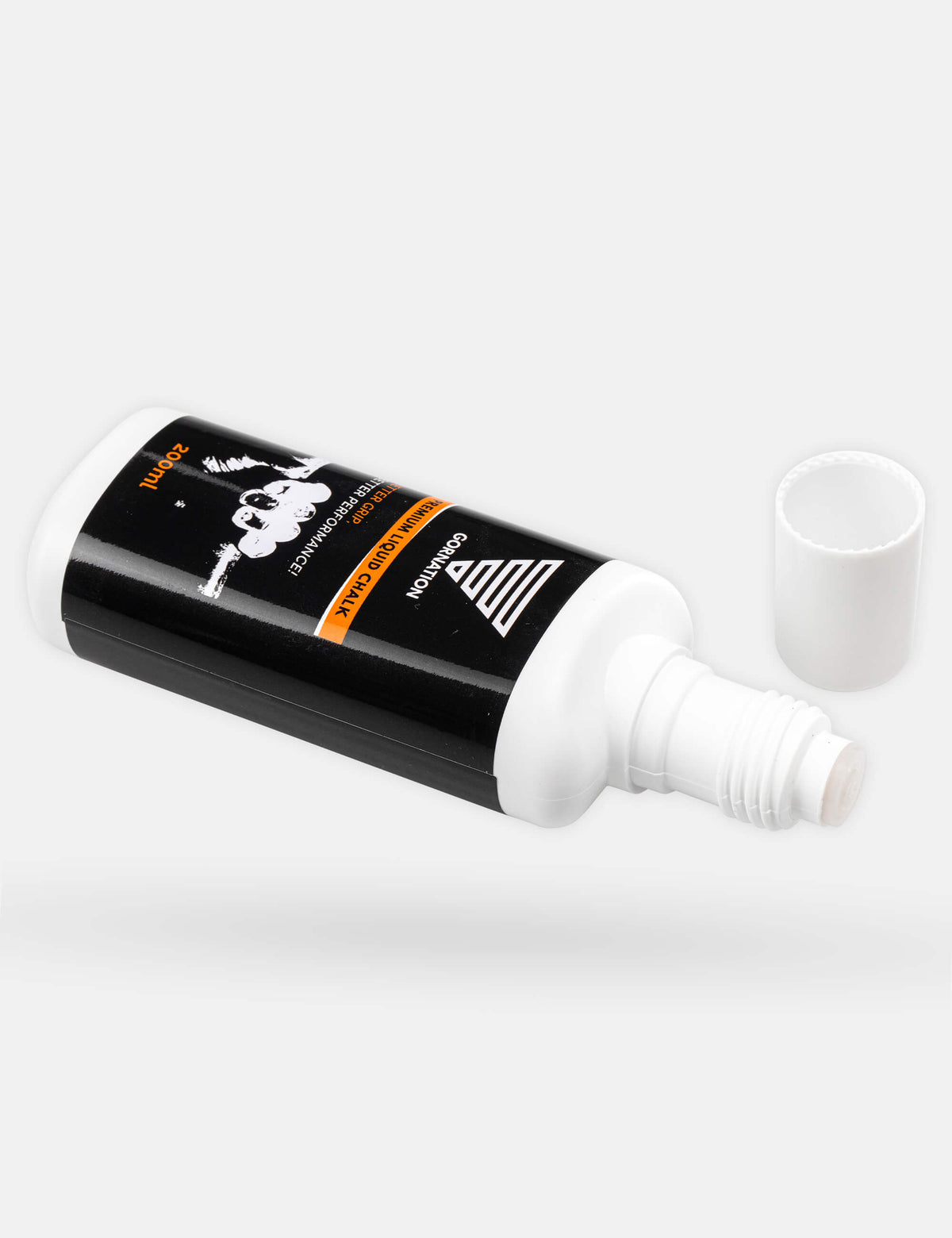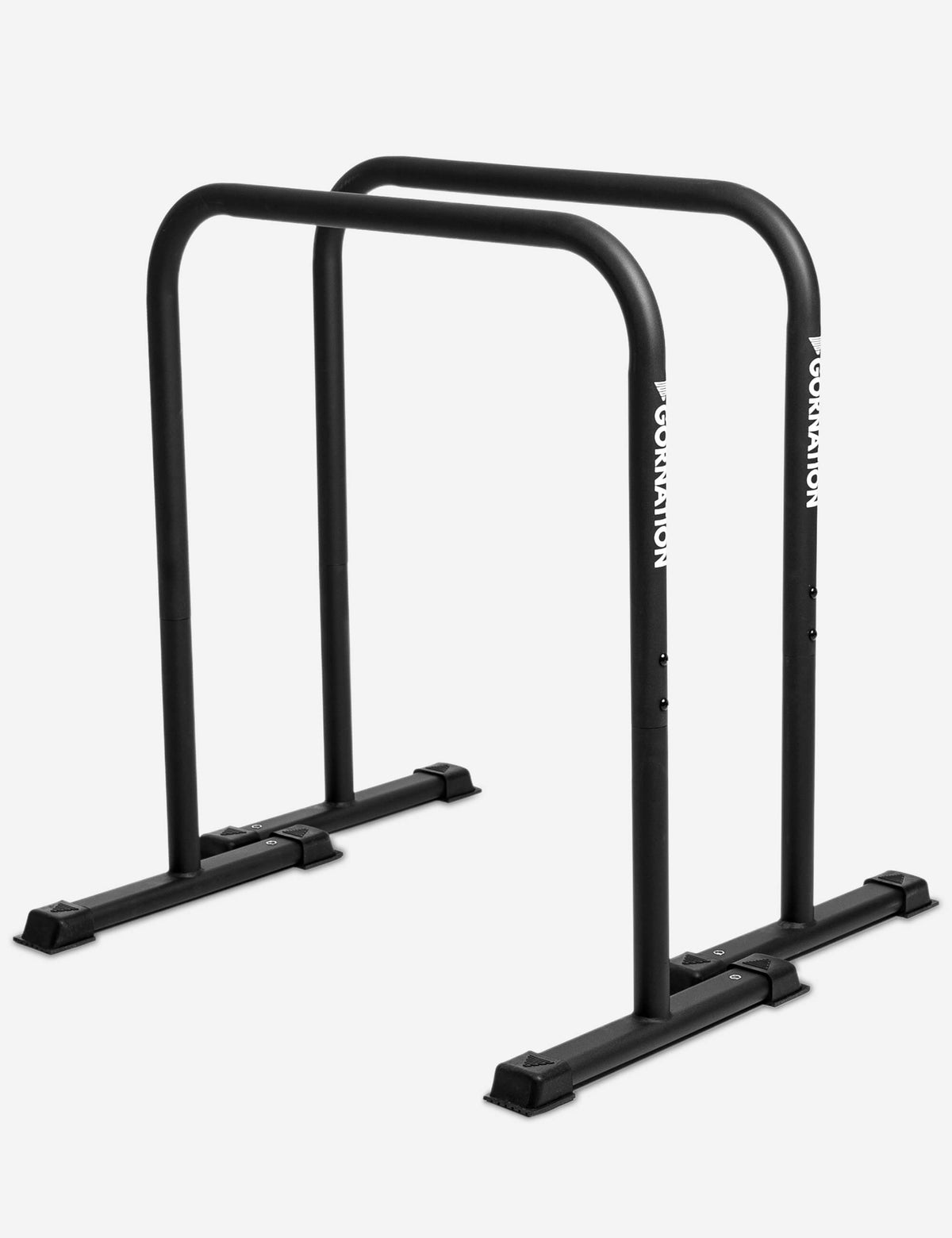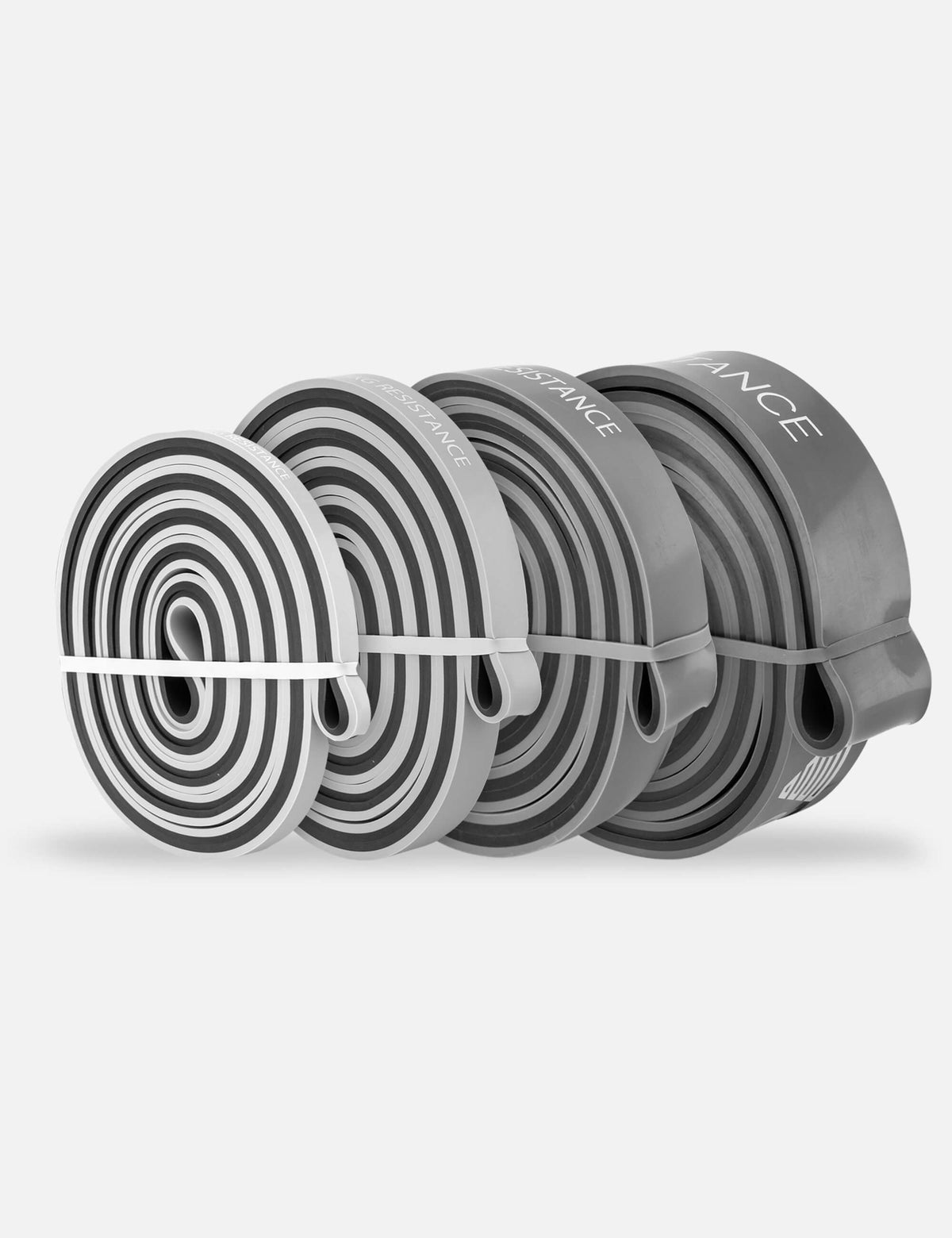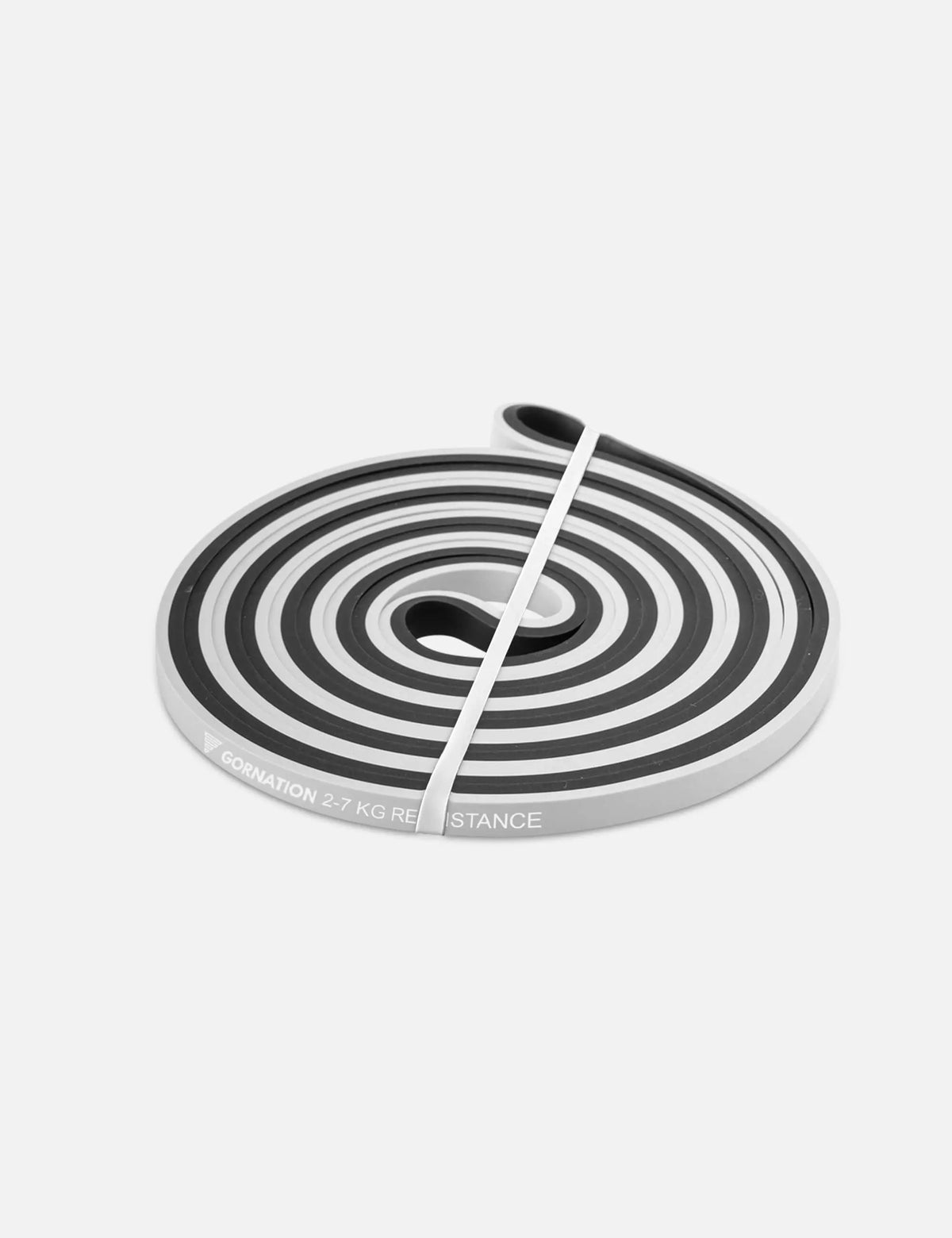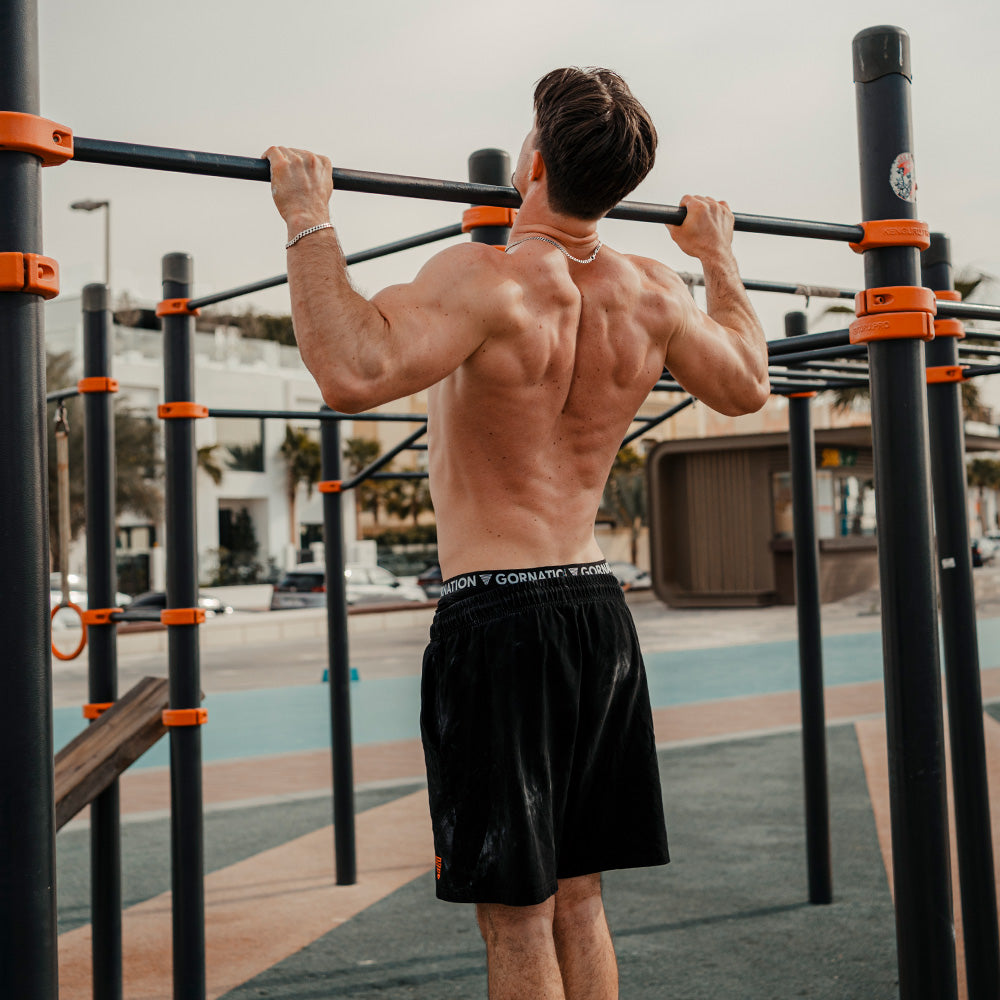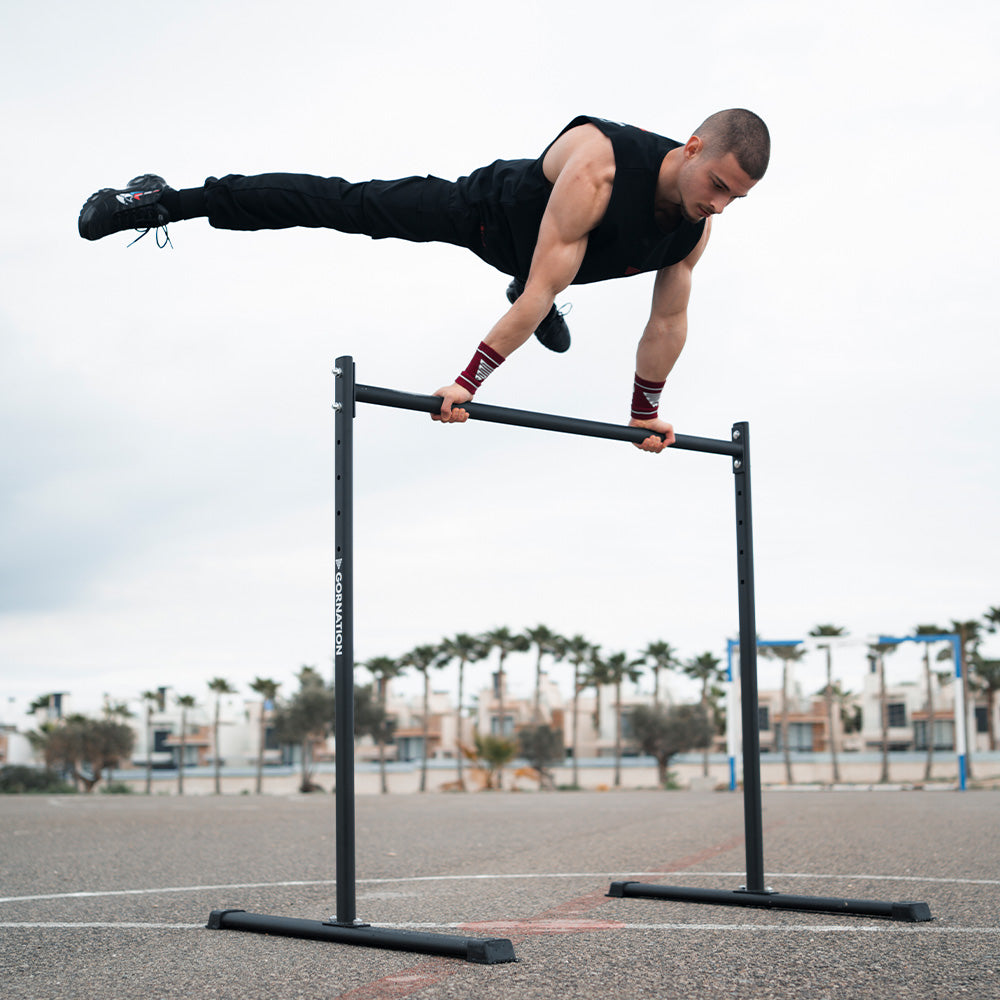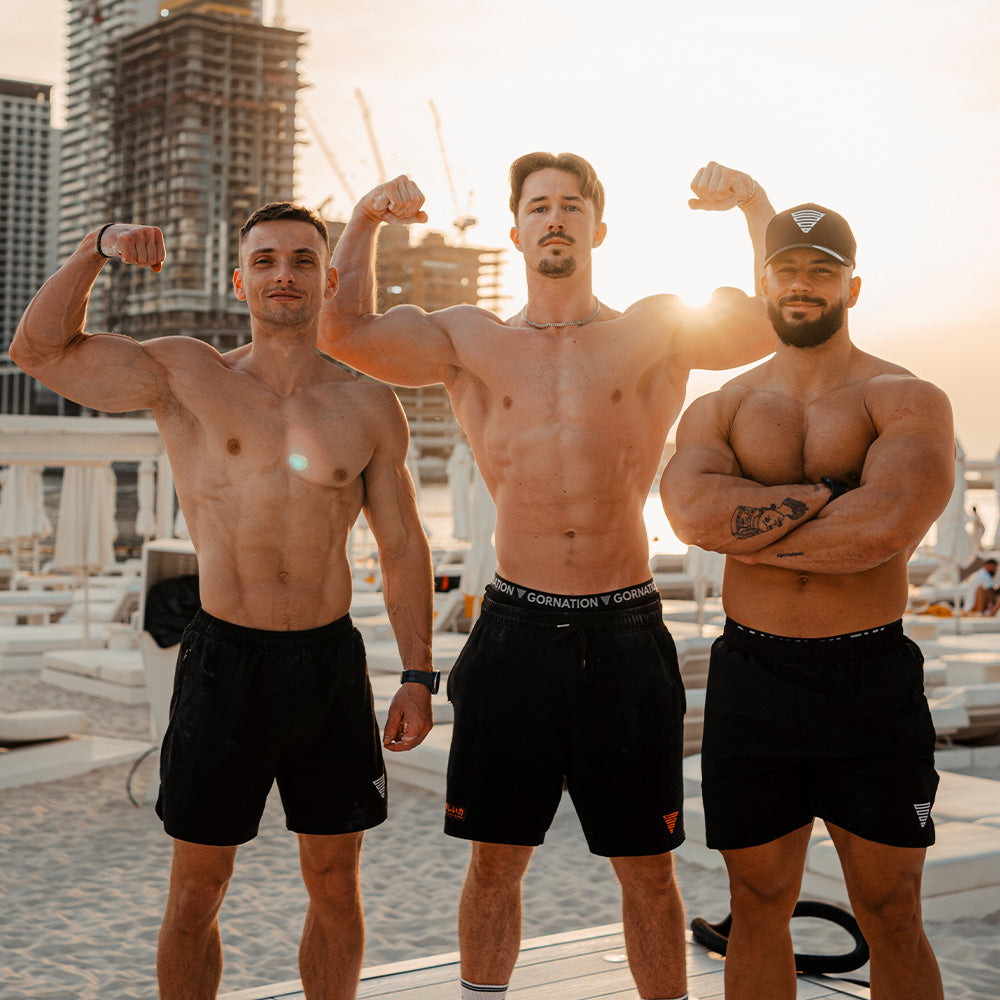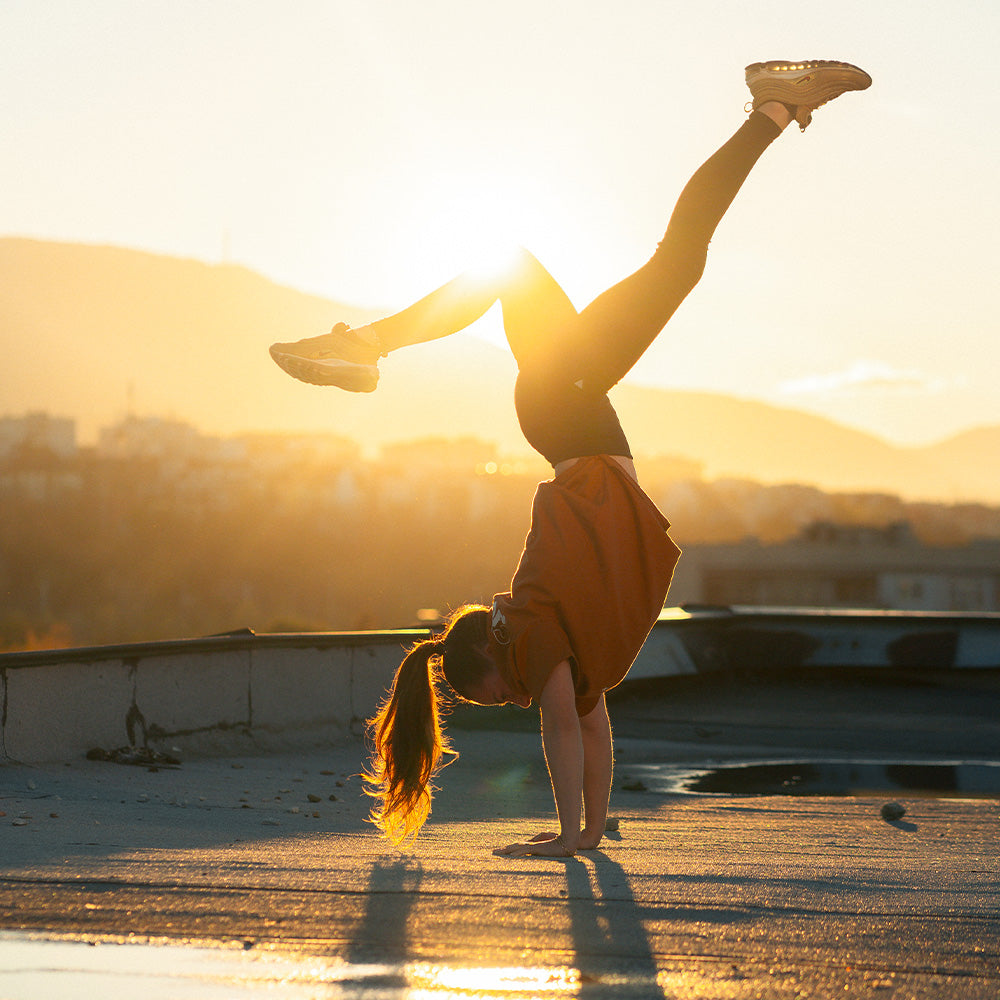SONDRE BERG | About Talent, Handstands & Superhuman Power | Interview | The Athlete Insider Podcast #37
Sondre Berg is known for his crazy bodycontrol, handstands & movement. He started with bodyweight training in 2012. Since 2015 he is coaching adults and youngsters in handbalancing, bodyweight strength, adult gymnastics and acrobatics.
View the interview here:
Or listen to the interview here:
| Age | 31 |
| Height | 179 cm |
| Weight | 80 kg |
| Country of origin | Norway |
| Speciality | Handstand & Movement |
| Started with Calisthenics | At the age of 20 |
Upgrade your Workout with the right equipment:



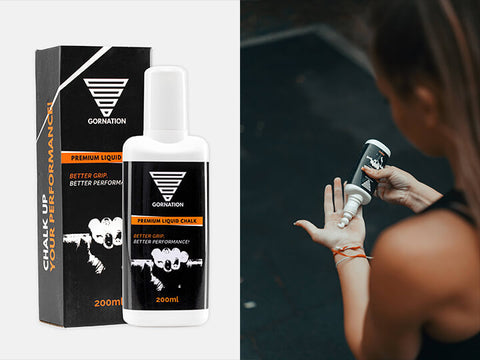
The text of the interview (translated automatically):
you always have this you know people are naturally talented and good genetics and stuff you know but in my experience those are the ones that fall off the wagon the easiest you gorillas welcome to the athlete insider podcast by gornation my name is phil and today's guest is somebody who was often requested in the comments the norwegian mover and uh yeah somebody who often shocks the calisthenic scene the hand balancing scene with uh some really really impressive skills in hand balancing in calisthenics i'm really happy to welcome you to the show sandra burke thank you philip it's an honor to get invited and nice to talk to you nice to talking to you as well um you're like uh really let's let's say a different athlete a really versatile athlete you seem to combine a lot of stuff so i'm really looking forward to look a little bit deeper in your head into your workout advice workout schedule etc to kick off who is andre how do you present yourself uh well i uh have been doing um calisthenics street workout movement you name it for about nine years now wow um so it's been a while it's been a journey yeah and in the beginning um i didn't really realize that that it was a thing you know i've been i was lifting some weights you know being an average gym goer nothing special for a few years just because i wanted to pack on some muscles and stuff you know the regular thing and i mean at some point i just got demotivated it wasn't really any fun and i remember watching youtube videos of people doing like human flags and muscle ups and stuff and i was like i gotta learn this [ __ ] um and i mean from there it just kept on rolling i was like i started just wanting to do like a human flag was my main goal because i think it looked so cool and a handstand push-up that was like my main two goals in the beginning and then i had to learn a handstand in order to do a handstand push-up you know and then i learned a human flag and then muscle up and i didn't really realize that it was a thing until i met some other people doing the stuff and they were like yeah we're doing street work out and i was like street workout what the [ __ ] is that and you know from there i i was just totally hooked and it was everything all that i was doing um and um at some point i started competing and within three or four years i think i won the nationals and then in some at some international competitions hong kong in beijing for the super finals in 2015 or 16 i think i don't remember but lately though i haven't really been competing and doing street workout that much because at some point i sort of lost the joy of training for competitions because there were so many other things that i wanted to learn and focus on so i sort of felt like distracted from my own goals when i had to prepare for competitions so i sort of moved a bit away from the street workout scene so to say and getting more into like movement and hand balancing and still doing a lot of body weight strength training but sort of combining it and trying to be creative and just exploring my own thing you know um so yeah that was basically my my story with movement nine years in the game uh like nine years of movement i i think i could have expected it um because uh your your performances are really insane uh like i watched your your last pose uh like insane stuff for example i don't know the what was it nine uh handstand clapping push-ups uh like this is stuff that is really really impressive and um how how old are you right now i'm 29 29 so you start with 20 so not even like as a as a kid or something no no i was uh before that i was yeah i mentioned i had like a few years of being a couple of years three years maybe of just being like a an average gym goer just going to the gym every now and then lifting some weights but nothing really special there but from i guess i was 10 years old i was a skater kid i mean i was competing in skateboarding and skateboarding was like my whole life up until i started university more or less and i started struggling with injuries and stuff and sort of needed a new addiction and somehow i stumbled upon this movement street workouts uh things yeah and and the ball just kept rolling in yeah it's already gotten yeah sorry yeah it was sort of my new skateboarding yeah because i see a lot of people switching from skateboarding to street workout because it's not only a sport i guess i didn't skate myself but it seems like you you switch from really a lifestyle something that you do in your free time and not it's not workout workout but it's like a lifestyle it's how you spend your time with friends etc yeah it's it's it's much more than just working out yes indeed okay um right now 29 years old coming to the heart fact how heavy and how tall are you i'm 179 centimeters and usually around 80 kilos so between 78 and 82 depending on the christmas time yeah like now i'm pretty happy now i'm uh now i'm almost 82. okay you know a lot of family dinners and a lot of nice food and yeah some beer and you know uh that is how it is and you don't feel your uh performance dropping right because the posts in the last day they are like uh from from now oh yeah they're from now but obviously when i am a bit heavier some of the moves are noticeably more difficult like plunges and and one arm pull-ups those are probably the moves i notice it the most on but i know that when new year's is over and i'm back at the back at it it's going to drop down pretty quickly again so i'm not too worried about it good so it's sort of like putting on a four kilo weight west for yeah for free or so and then yeah true yeah uh can you take us with uh like nine years ago uh you started with calisthenics with a street workout you had like three years of basic strength training in the gym how did your beginning and street workout when ago did it go easy were you already able to do some pull-ups how was the beginning well for me pulling exercises has always been like a weak spot i remember pushing strength has always sort of come rather easy or easier to me we all have our strengths right so i remember struggling with pull-ups like when i was younger and we were having like physical education and stuff and i couldn't even do a pull-up so i remember struggling hard with the pulling part and after starting with calisthenics it took me about a year to achieve a muscle up while it took me six months to do a freestanding handstand push-up wow um so um like i said we're all different and some people they take like front levers and muscle ups and one arm pull-ups it's rather easy for them to achieve and some people struggle with handstand push-ups you know for me that sort of road has been a lot easier but i'm still struggling hard with the pulling exercises i mean i did my first uh proper full front lever this year after nine years wow yeah i'm not kidding wow so it's obviously about a lot of things like what you're predisposed for like genetically and also like the uh mechanical advantages of your body type so i have rather short arms making pushing easier because i have not have i don't have that long of a way to go in my pushing because my arms are a bit shorter but then in front levers and planches i need to have a much steeper angle making the muscles much more weak in the position so they're more difficult and in addition to this um pulling strength has like always been super difficult for me even though i've been working as hard with them always working on my weak spot obviously but yeah okay yeah that's that's a really interesting part because um i i before you said that with your genetics etc i wanted to prepare the question that um if if it's uh something genetical is it something that you can influence is it something that changes in your life but it really depends on the mechanics and the on the biomechanics i guess um yeah so um yeah and you're like you seem like a really scientific guy like somebody who is really uh like structured etc um so that's something that you analyzed yourself or how did you get to this conclusion well i i do a lot of reading obviously and i also have uh i'm i'm um engineer um electrical engineer but we we know our basic physics so some some things even though i'm not a specialist in biomechanics you know uh some things uh can be deduced rather simple with uh regular mechanical physics you know um and obviously doing a lot of reading um but it goes without saying that anyone can do most things some people need to work harder on some things while others take other things easier that's how it is but it's not like it's an excuse i mean i could have given up front lever after four years of not attaining it but i didn't and some people might say it's not worth it but um yeah for me it's uh important to sort of prove that i uh i can do it even though i have to spend 10 years yeah crazy but it's an impressive story because um yeah as you said like a lot of people would give up after a few years of not attaining it and like you're like having really good results in the pushing movements in handstand etc um yeah take us um to the time that you prepared for your competitions and that you took uh part in your first competitions um maybe also in combination with your uh let's call it weakness in in pulling strength um how how did they go the for the competitions how was that my first time in the nationals i think i got fifth place um but i mean street workout wasn't really big in norway it's still not very big but it's growing like it is worldwide and i just remember uh being so stoked about meeting so many people like training the same and competition was more about just meeting people and getting inspired and stuff like this and that's sort of what drove me for to do competitions uh in the in those three years that i i think three or four years that i was actively competing um and like you said obviously i had some weak spots but everyone has their weak spots so i tried to focus on elevating my weaknesses but still focusing on my strength you know i wanted to show off my style and what i was good for and then i was just trying to be like average struggling to to be average in in the parts that i was struggling with so yeah i was never much of a never that good at doing like high bar freestyling either so instead i compensated with developing like sort of like a freestyle uh thing on the ground like doing flips to handstand stuff and um sort of uh compensating for not being that good in the bars and i could do some pretty cool free freestyle stuff on p bars as well and then i i just had to learn like 360 and some basic stuff just to sort of just do it but that was ultimately what drove me away from competing as well though because i felt that i had to do a lot of things that i wasn't really enjoying um when i was preparing for competitions so that was also very ambivalent in that i loved going to competitions meeting a lot of people and just having a good time you know but at the same time i sort of started branching out and going my own directions and i didn't really have time to focus on what's needed in order to perform good in these competitions okay yeah i can well imagine because today's competitions are like built to for for most competitions are built for complete athletes so those uh who like combine uh dynamics with aesthetics um and um yeah it's it's hard to um because i when i watch your social media you're like really focusing on the on the hand balancing on the uh the pushing part etc and then i can imagine that it's hard um to develop and to not get i don't know distracted uh from from having to focus on the competition's rules and not on your on your goals on your personal personal goals yeah and and also i've like gotten so much inspiration from other sort of movement scenes like um doing these acrobatic moves and some capoeira stuff or even break dancing in a lot of hand balancing stuff like you said so i i really like exploring these uh different paths and sort of um going with the flow there what what athletes uh do you follow uh to get some inspiration for your next moves etc well there's so many uh and mostly now it's uh athletes doing uh completely different stuff like even some people doing contemporary dance and some people doing tricking and stuff like this and but um i like one of my main source of inspirations from this sort of time where i was sort of developing my my style was you know sci monster right yes yeah simonara is he's got such a clean style sort of a blend between uh calisthenics and breakdancing and he's doing a lot of crazy stuff um so he was he has definitely been a huge inspiration of mine um but now i i take in everything i get from different different places okay yeah because like you seem really open-minded for a lot of stuff um because you're not uh like as i said not too much focused on the competition's rules but really taking some stuff from tricking taking some stuff from breakdance from hand balancing and um yeah creating your own style which you which you sum up in movement i guess um so um yeah um take us in your workout schedule for the week um if you want to combine so much stuff and if you have like so many things to work on how do you put everything in one week well i usually divide between play sessions and strength sessions and sometimes mobility and hand balancing sessions as well so often i do two workouts a day um i'm doing a phd so i sort of have to be at the office like eight hours a day but usually i i take like an hour lunch break where i go do an hour of mobility and handstanding at the gym right next to the university and then i usually have a workout in the evening so five yeah five or six times a week that would be like proper strength workout focusing on my main strength goals you know training for planches front levers hands-down push-up variations and and stuff like this and then sometimes i go to like a gymnastic gym to do some tricking or acrobatic stuff and practice practice my acrobatics in a safe environment and usually i have a tour a couple of times a week with climbing as well because i'm i'm really happy to be climbing as well and i mean i mean you get pretty strong uh from doing climbing and bouldering as well yeah so it's sort of complementary and it's also a way of moving uh in the in the walls obviously but so much fun that's true it's it always um impresses me when i like watch uh the ninja warrior stuff um where the climbers and the boulders are really the ones uh who are like uh having it so easy with uh some obstacles where like hallucinogens athletes or uh i don't know what other sports like have it really really difficult but all this grip strength hand strength but also like the scapula stuff um that's really impressive for for that um crazy so you sacrifice your lunch uh for for a workout well uh yeah obviously i eat also though but uh instead of sitting down and eating for half an hour i i maybe uh throw down a couple of boiled eggs and go and do some hand standing instead yeah impressive so yeah the results that you have like um it's really impressive to see and what do you think is your secret uh is it is it your genetics is it your discipline is it your nutrition is it your um workout approach scientific workout schedule etc what is it that makes you this strong i would go with consistency and obviously smart training motivation and having fun like obviously when you're doing a hard strength workout it's not always fun but what you achieve in the long term is a lot of fun and what you can do with this strength so i think for me to stay motivated that has sort of been the secret uh to focus on using this strength to do something that i i think is a lot of fun and to use it to do other things than just doing for example if i'm training handstand push-ups i can use handstand push-ups in being creative in my movement on other in other sorts of moves and sort of seeing a relationship between me building a stronger body and being able to move differently and my sort of always my ultimate goal has sort of been to to just be able to do whatever i want with my body if you know what i'm saying i want to like see somebody do something and i'm like i can do that i just need a couple of weeks to get the technique right or just when i'm laying in in my bed just daydreaming and just some moves pop up into my head and i'm like yeah i can do that if you know what i'm saying yeah so you want to prepare your body for for the stuff that you want to do like um to be a really versatile uh yeah and to be able to do a lot of stuff at the same time yeah because maybe that's also something that um drove you away from from fitness training because um i feel that uh yeah fitness training a lot of people are going away from it because it's quite monotone and you do the same thing the whole time but it also often you feel that it's strength that you can't really use in in daily life or uh that doesn't really support you and achieve yeah well yeah well i'm not to say that all of that is inferior it's just that for me it doesn't work but i i think that as long as people are active and do something they think is fun or that they can stay motivated then it's perfect we all have different goals right so um yeah and i think there's a lot of people who just hasn't found their thing yet because a lot of people they don't exercise because they think it's boring but there are ten thousands different way of exercising uh i mean doing team sports or doing fitness or doing parkour or dancing i mean everyone uh will everyone think thinks exercising is fun they just haven't found their sort of way yet so i think it's important to explore yeah because that's really already a takeaway from me a lot of athletes say that you need discipline and i think it's true but you can also support discipline or support your body being able to show more discipline if you just have fun during your workout and for example if you would have stuck with your um professional calisthenics career like competing and learning dynamics learning front lever pull-ups whatever you would need a lot of discipline because your body doesn't you you don't feel like it's it's the best thing for you but if you exchange like discipline a little bit for fun um that you uh you do whatever you want to do um i think you need you need less discipline you need less willpower because you like to go to work out yeah i think it's important to find like a sweet spot and a balance um that makes you motivated and in in continuing now in the long term those that get good are those that stick with it for a long time and you always have this you know people are naturally talented and good genetics and stuff you know but in my uh experience those are the ones that fall off the wagon the easiest because when like when a going gets tough they're not used to working hard and for them it gets boring because they actually have to put in a lot of hard work to get at a certain level so they like reach like a like an advanced level super fast and then they're like uh they they realize that in order to get better they have to put in so much work and that's not something they're used to yeah um so i think uh those that get far are the ones that are able to keep motivated and push push themselves true um yeah there are a lot of listeners i guess who are interested in your handstand secrets let's call them and you also made a made a course about it uh do you want to um yeah take us maybe a little bit in detail what people can improve in their handstand and maybe also in combination with your handstand course that you uh yeah have on your website etc um that people can can check out to to learn more from you yeah well if i guess my approach to hand balancing is a bit different because obviously to get a perfect handstand handstand there's so many things that needs to be in place right you have you need the strength you need mobility and balance and technique and all this stuff you know but i think people generally or not everyone but a lot of people they tend to overthink it and focus on for example the perfect form way too soon in their journey and obviously a lot of people will decapitate me for saying this but i'm not saying that a good form is not important because it is especially if you want to take your handstands and your hand balancing to to a high level at some point but what people also need to realize is that there are some limits regarding mobility especially shoulder mobility for example that can take a year or even more to achieve the mobility needed to do a perfect handstand so um it's basically impossible to do a perfect handstand without this mobility right so there's not really any point in trying to enter a perfect position if your body is not capable of it so you obviously need to work on this mobility on the side but focusing on actually getting comfortable upside down learning to balance and just being in the position and getting uh getting really good at balancing that should be like the main priority and obviously focusing on mobility and all of this stuff on the side and then applying it to your handstand once your handstand is stable enough to think of more than just balancing uh because you know if you if you're already struggling to balance for five to ten seconds that's i mean your your brain is working at 100 cpu just to just to stay there and if you're trying to introduce like uh like uh tilt tilt your pelvis and people talk about stomach in and all this stuff if you're trying to implement this into your handstand when you're already at 100 cpu uh doing your balancing you're not going to get much out of it so um i think that's generally a problem um because it is important and you need to work on it but there's no point in trying to do something your body is not capable of and sort of punishing yourself like oh my form is so [ __ ] i need to do this i need to do this so everything you're thinking about when you're handstanding is doing something that you're not really mechanically capable of because you lack the mobility so do your handstanding learn to balance focus on on that stuff and then on the side you work on mobility so that you can eventually be able to enter this perfect handstand position and also a lot of people tend to be a bit egocentric in their training because when they can balance a handstand for five seconds they never use the wall again and the wall is your friend that's where you should do your uh mobility or not your mobility but your form correcting exercises that's where you learn to enter a good form handstand and then you you you implement that into your freestanding handstand when your freestanding handstand is is good enough for you to be thinking of more than just keeping balance it's totally relatable um i see a lot of people um because like a lot of coaches etc are um yeah uh telling you have the henson has to be perfect and this is the way how it's perfect uh like even the head uh the head on the chest like really advanced advanced advanced uh and so that's a very that's the worst tip ever given to anyone and it's from gymnastics and they teach the kid this kids this because kids have a tendency to flare their head out when they're looking down but never ever should you learn a handstand looking anywhere else than between your hands in the ground okay so not even the head straight well you could at some point focus on tucking in your head a bit but if you're looking in between your hands between your thumbs more or less uh your head won't be flaring that much out so if you just look at that spot then you shouldn't think too much about your head okay uh in my opinion um because looking like straight backwards or upwards that's like an advanced hand balancing skill and you shouldn't be even thinking about chasing it before you can do like 30 60 seconds of a regular handstand yeah and it will have no mechanical advantage either okay it just sort of feels easier to enter a good form in that position but yeah okay the question that maybe some people have in their heads now um aren't you afraid of uh like uh injuries uh when you first practice not the perfect form what can you tell to to these people or to these doubts well handstand related injuries in my experience i mean i've been coaching people from scratch for five years uh at least a couple hundred people and in my opinion handstand related injuries are almost always in the wrists um and you won't get more uh tension on your wrist from doing a not perfect formed handstand i mean some people have heard saying that if you have an arch back then you will get a back injury but just to illustrate i can stand like this for three minutes and it's not really hurting my body right uh so you won't get a lot of tension on your back from a not good formed handstand so um the most important thing in preventing handstand injuries is strengthening your wrists which a lot of people tend to uh overlook so from the beginning from my first years even i remember doing a lot of research because i always do that when approaching new moves so i probably looked through all of the handstand material available at that time um and i at that time i started doing wrist strengthening exercises and i have never had any wrist problems whatsoever and i always teach this to to all of the people i teach handstanding to um general wrist conditioning is the best thing you do to prevent hands-on injuries and you need to stick to stick to it yeah and you need to also ensure progress and uh progressively increase the load on your wrists as well so that they actually get stronger i mean you can do the same thing for 10 years without getting stronger if you don't apply more pressure along the way true okay so yeah what what role do basics play in this like push-ups pull-ups dips etc well having strong shoulders and a strong core is is a big advantage um because you can get away with uh not having a perfect form because you're strong enough to hold it some people would say that this is the wrong way of looking at it but i i think i think not because for me that has also been like a thing because i've always been quite strong so for me to enter a new position i can get away with not doing the technique perfect because i'm strong enough to to sort of cheat my way into the position and then once i'm able to hold this position i can focus on perfecting the form and making it efficient which is much easier if you're already able to enter the position right yeah so um obviously i'm not i i think good form and technique is very important but i don't think it comes first it comes second uh not just because it's sometimes easier to approach it in this way but also because motivation is a big factor i mean you can you can spend one year preparing your body so that you eventually will be able to enter a perfect handstand form or you can learn to handstand imperfectly within a few months and then spend the next nine months uh doing handstands and having fun while uh developing this handstand into a perfect handstand if you if you get the idea yeah makes sense so do you still uh do basics in your workouts today well what's basics anyways uh like like regular push-ups tips ups yeah no i i don't why well i can do them for warm-up but i i don't think it's any fun okay i mean i mean at some point when you can for example push-ups um if you can do like 50 60 70 push-ups for me it doesn't make any sense towards my goals because i want to get i want to get strong i want to focus on maximum strength so i always develop all of my moves in a way that makes them more and more difficult progressively more difficult so that i'm always and i was i also never liked rapping okay um i like working maximum strength um and not too much repping also because i don't want to i try not to focus too much on hypertrophy training because getting big is not really an advantage in in this game it's better to focus on strengthening strengthening your muscles your ligaments your joints your nervous system and focusing on uh pure strength at least that's uh what i think is fun and motivating but obviously if you if a lot of people want to focus on packing our muscle and stuff and if that's the case then then doing basics in higher rep schemes schemes and focusing on hypertrophy training it does make a lot of sense okay cool also a role in your um career as an as an athlete uh i think plays your nutrition um so maybe let's go a few weeks uh before before christmas now um what do you what do you usually eat and how do you how is your nutrition well through my years of being an athlete i've experimented with a lot of things you know i've been doing low carb i've been doing no carb i've been doing slow carb i've been doing high carb high protein you know i've been trying all of this stuff uh thinking that it matters a lot uh but in the end i don't feel that it do as long as i generally eat healthy and get my macros properly i mean i sort of found it uh pointless to obsess over um over dieting because i remember learning quite early that dieting is like 80 percent of fitness stuff like this and such [ __ ] okay i mean at some point if you're doing like bodybuilding and you're doing uh professional sports then it might be the thing that differentiates you from the other ones in the top level you know and it's obviously important to be healthy like generally but i don't think that for me it's not worth obsessing over because actually spending time working out is what's going to to get you there so i feel like a lot of people focus too much on things that matter less and obviously it doesn't matter to have a have a good diet but it's not like having a good diet will make you super strong super fast i mean working out consistently will make you super strong and dieting will most likely make it a bit more efficient but you you will never it's not like you you can just have a good diet and do one workout a week and that's enough i mean okay um yeah do you have some standards in eating i don't know not eating this and this yeah based on my own preferences i do because i notice eating sugars i don't feel well and i don't perform well obviously i eat sugars but eating like a lot of sugars makes me feel bad so i try to stay away from it generally obviously i like the the milk chocolate every now and then and i also noticed that i get generally a better energy level and less energy swings when eating more not too much fast carbs so whole foods in general and i also don't respond very well to uh to flour like wheat flour i get like a bit bloated and uh yeah you know so i generally stay away from from bread and stuff like this also generally like now and it's christmas i'm home at my parents place and they get like new like fresh bread every day and um fresh bread it's nice yeah good for you so but yeah it's all like in a general sense and every now and then on a sunday i can get some nice bread to to sort of just have a nice sunday breakfast you know but uh in a general manner i i stay away from from sugars and bread and eat a lot of whole food a lot of eggs okay yeah uh me too yeah exactly nice um do you take any supplements because people are always um asking about supplements no no no i mean i i do have protein powder available and sometimes i take it with me when i'm going hiking or when i know that i won't have time to to make a proper meal then it can be a nice replacement or addition to you know some if i bring some bananas an apple a couple of eggs and a a small small bag of protein powder then i know i'm set for for the next eight hours but it's not not like i like i take two protein shakes a day or something no okay and also if i i'm in a hurry and i just need something to fill my my stomach with like super fast and it's also a nice alternative but i generally like making food and good tasting food and i think that eating proper food is is nice true um yeah talking about the next topic injuries uh what kind of injuries did you have in your career you're doing a lot of stuff that is really putting a lot of pressure on the wrist on the shoulders etc on the on the elbows and did you have any injuries uh yeah i always always have an injury i can't remember the last time i didn't have an injury okay um i mean at some point when you're at some level it's to expect to to get an injury uh every now and then sometimes it's it can be like i pull a muscle and it goes over in in a week or so i have this weird thing i always or not always but often i i pull my lats uh i get this sort of sore lats uh if i especially if i try doing planches without warming up okay and it's incredible how you how you can do that when you know uh that this will happen even though i've been doing this for nine years and i'm like yeah but i've had quite a few more serious injuries than that though some are actually permanent as well um in a competition in hong kong in i think it was 2015 or 16. um i did like a one arm keeping muscle up to a 360 and my 360 sort of went a bit wrong so when i caught the bar i didn't have didn't have any time to sort of dampen the movement so i sort of just oh okay got this uh got this really jerky landing and because it was in a competition i i was full of adrenaline and stuff i didn't really notice it and i finished and i actually won the the world cup stage there well so i was like super happy and i didn't really notice it but i i woke up the next morning and both my arms i couldn't lift them up and they were my shoulders were totally [ __ ] for uh three months i think and ever after that that's like five years ago i'm still having pain in my shoulders so i did a lot of x-rays and mris and stuff like this and it turns out my my labrum has broken in in on the back side of the of the joint and it's not really they i was told that if it doesn't heal by itself within the first few months then it won't heal so it would need surgery to to heal but luckily for me it's a very restricted range of motion that hurts for me and it's like whenever my elbow is behind my back and i need to use my bicep so you know classical sort of hefesto movement yeah or or if i do the supinated back levers i can't do that at all it sort of just pinches back here and it just i lose all all power so at that time i learned my first festo like a few months before that and i was never able to train it again because i knew that if i was going to do the operation or the surgery then it would take a year to sort of before i could start training properly again and then it would take probably one year more to get back where i was and i i can definitely live with this i just need to stay away from that exact uh movement and in the end it sort of turned out in a good way also because because i wasn't able to train for a festos i sort of wanted to train for an alternative so i started training for inverted muscle ups which is also a bicep intense move right it's sort of the same just in front of your body so i don't need to get my elbows in the back here and that way it doesn't hurt my shoulders so i learned that sort of as an alternative and that's sort of a nice representation of how i deal with injuries because you can always train something and in my experience uh often you just need to sort of alter the exercises in a way that sort of moves around the injury i've had a bunch of uh i have this chronic case of uh tendonitis in my elbow so on the outside here i also had uh the the golfer's version on the inside but mostly it's the the one on the outside that uh that hits me and at least for four months four or five months each year i struggle with this in the full season oh well uh not necessarily okay uh there's no real pattern uh it just sometimes flares up and i always know what to do because it's uh i just need to do different grip variations for example training one arm pull up is usually triggering this pain but uh it's only painful in the bottom motion if i have a supinated grip and it's also painful in the top mo in the top range of motion if i have a pronated grip okay so i figured doing it on rings where i start with uh where i start with a with a supinate pronated grip and then end up in a then i don't feel the pain at all okay um and uh you know practicing for planche 360s at some point i landed on top of my thumb with my whole body on top of it sort of and i totally [ __ ] up my my thumb or my i don't remember what this joint is called anyways but i ended up having to have a cast on this and immobilize it for a couple of months but i figured out that okay i can't handstand doing this unless i do it on my so fists two months i was like doing 90 degree push-ups and handstand push-ups on my fists to to to sort of walk around the injury and i always find a way and sometimes if i'm like totally immobilized due to upper body injury then i focus on flexibility and lower body mobility so and many cases i end up learning new things when i'm injured because i have to focus on other things that doesn't hurt and that's how i also got into training for the one arm handstand push up which was my ac joint that sort of got loose and i couldn't do any uh horizontal pushing and it was like one and a half years ago and i was doing a lot of 90-degree push-up variations for to to make my handstand pushing uh difficult enough for maximum strength training and then i couldn't do any of the horizontal pushing because of this ac joint injury so i needed to find a way to because um vertical pushing didn't hurt at all so i needed to find a way to make the vertical pushing hard enough so i i ended up starting to train towards the one arm handstand push-up which i'm still doing and still far away though but i have this uh dream of doing it one time in the future um so injuries tend to sort of be an eye-opener and also forces me to focus on uh things that i've been neglecting before well i think that's yeah i think that's an inspiration for everybody who is dealing with injuries etc to just work around it and to be creative and still listen to your body i guess but yeah i'm not saying that people should just keep pushing it i mean you need to learn to know your body and and to if it hurts you definitely shouldn't do it especially if it hurts more after but just doing nothing is generally not a good idea either because depends on the injury if you broke your arm then obviously you need to stay still for for a couple of months but generally training is good for recovery you just need to adjust it sure nice to sum up we're closely coming to an end of the interview um what are the three main things that you want to give to the listener to improve his workout and his his results uh stay open-minded and experiment with the with things and train smart be smart when you're injured and have fun yeah nice yes at the end we always have some quick questions quick answers um what do you prefer pizza or burger he's a pizza okay are you a dog or a cat person dog dog okay do you have a favorite location for holidays anywhere warm okay yeah the the the german guy the norwegian guy is sitting here in the cold in the winter and dreaming of i don't know thailand and uh all the all these warm-ups but i do i do enjoy going to places where i can climb or scuba dive or but you can do that so many places so it's hard to choose and you're also doing winter sports right yes but that i can do in norway yeah that's true um yeah you uh do you have a favorite calisthenics athlete somebody or top three uh simon adda sai monster would probably be my my favorite yes okay it's funny he uh he will be the the episode before you uh so it will be it will be a worthy uh interview guest before do you have a favorite book that you want to recommend no i mean i i'm doing my phd and i've been studying for so many years now i never had time to enjoy books that are not academic and i mean i could i could i mean i could talk about uh power engineering book but uh that's probably not too interesting okay uh if you could only follow one person on instagram who would it be got you i would follow my girlfriend okay good answer um the best calisthenics event you've ever visited i i really enjoyed the world cup stages in germa i've been there two or three times i think okay great yeah we're coming to an end how can people get in touch with you how can they learn from you yes uh well instagram obviously sandra berg with an underscore in between but i also started a youtube channel quite recently so there's not too much content yet but there is more coming there's already quite a lot but um and i also have my website which is bergmovement.com where you can get access to some recorded follow-along classes mostly for beginners but also people who want to get sort of an insight into how i structure the workouts and what i focus on when training strength movement there's some handstanding there too and i have this handstand course on the graphi app which can also be found on my website just clicking through the links on my website there great we will also put all the links in the description so everybody who wants to check out your crazy videos on you on instagram your new content on youtube or your website and the app um everything is in the description thanks a lot for your time sandra i am really happy that we that we realized this and thanks for everyone listening till the end and also asking to interview you because it was a really insightful interview um different kind of athlete different kind of training method and yeah thanks everyone listening to this over an hour of content and if you like this episode give it a thumbs up give it a comment uh who should be interviewed next thanks for your support and sandra you can say goodbye to everyone and you have the last word all right well thank you for having me it's been a pleasure and um thanks to all the listeners if you managed to listen through this hour of uh endlessly talking uh but um yeah i hope you find uh found some good lessons and some inspiration and feel free to send me personal messages on instagram i usually answer everyone if you have any particular questions and check out my courses and stuff like this i'm just getting started with my business so all support is appreciated and you can expect much more to come in the future
 | 3.700+ Reviews
| 3.700+ Reviews Free EU Shipping above 100€*
Free EU Shipping above 100€*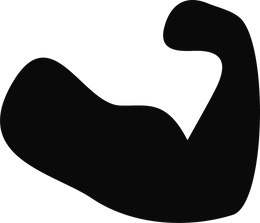 200.000+ Customers Worldwide
200.000+ Customers Worldwide Worldwide Tracked Shipping
Worldwide Tracked Shipping

